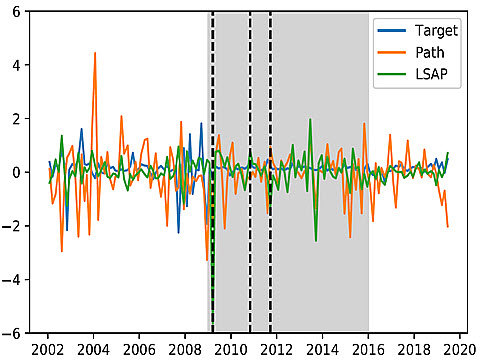Credit Risk and the Transmission of Interest Rate Shocks
Published: December 3, 2020
Unexpected changes in interest rates, often observed through the course of monetary policy, can have a significant effect on corporate credit risk. Using high frequency measures of interest rate surprises surrounding Federal Open Market Committee announcements and daily credit default swap (CDS) spreads, this paper finds a positive, significant relationship between monetary policy shocks and corporate credit risk over the last two decades. One component of the spread affected is compensation related to expected losses in default. The other affected component is the credit risk premium, which measures additional compensation for default risk. Riskier firms, with higher CDS spreads or leverage, or lower market capitalization, are much more sensitive to monetary policy shocks. Among the three measures of firm risk, CDS spreads appear to capture this sensitivity best. High frequency and daily equity returns also exhibit a significant and asymmetric response to policy announcements. (Working Paper no. 20-05)
Abstract
Using daily credit default swap (CDS) data going back to the early 2000s, we find a positive and significant relation between corporate credit risk and unexpected interest rate shocks around FOMC announcement days. Positive interest rate movements increase the expected loss component of CDS spreads as well as a risk premium component that captures compensation for default risk. Not all firms respond in the same manner. Consistent with recent evidence, we find that firm-level credit risk (as proxied by the CDS spread) is an important driver of the response to monetary policy shocks — both in credit and equity markets — and plays a more prominent role in determining monetary policy sensitivity than other common proxies of firm-level risk such as leverage and market size. A stylized corporate model of monetary policy, firm investment, and financing decisions rationalizes our findings.
Keywords: Credit risk, CDS, monetary policy, shock transmission, equity returns
JEL Classifications: E52, G12, G18, G32
